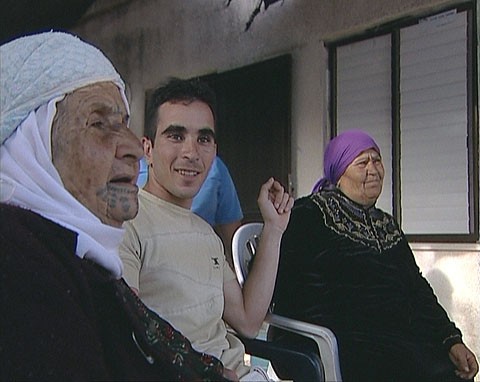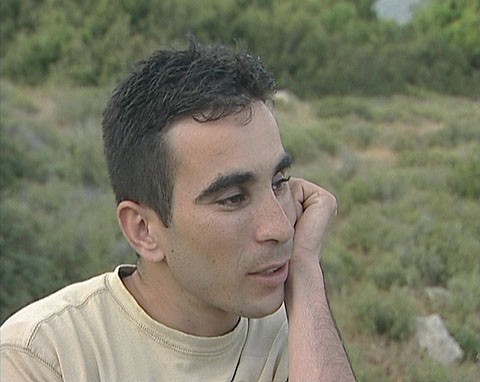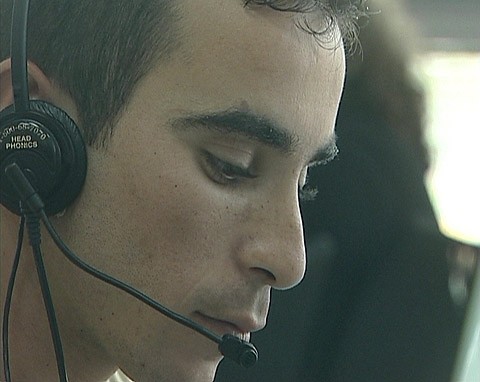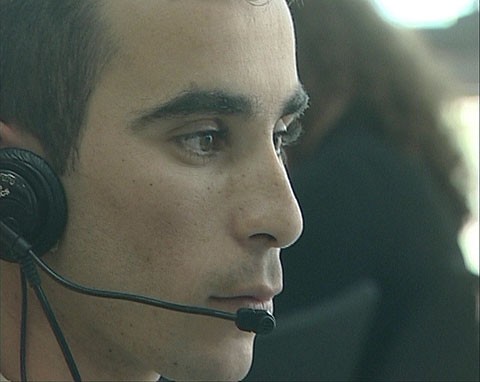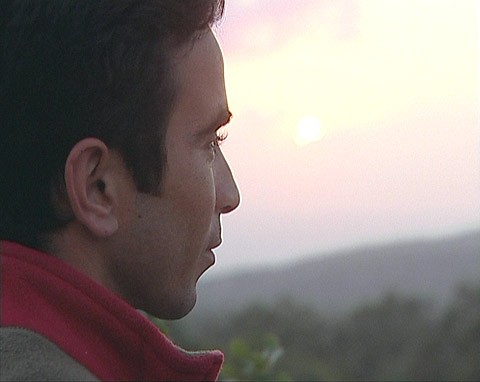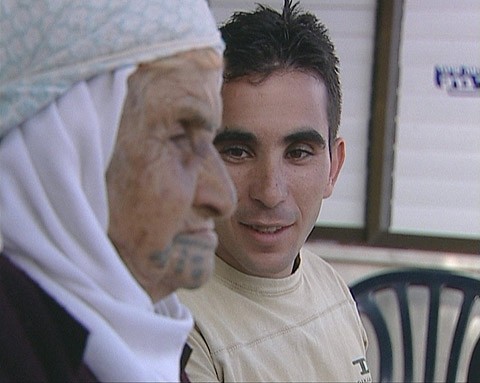Achmed Hamdoon, a young Arab Bedouin of the Hamdoon tribe, was raised in the family tin hut, a few meters away from the locked gate of Kibbutz "Lotem" in West Galilee, Northern Israel. Having longed for the kibbutz life most of his youth, he finally pulls out and moves to "Lotem", changing his name to the typically Israeli name Meidan Sade. The clan is outraged and sees him as a "traitor". But Meidan, no longer Achmed, feels he cannot access better opportunities in the Israeli society as a Bedouin. Indeed, he becomes "the first Hamdoon" to carry ammunition while guarding the Kibbutz, completes his high school degree, and finds a new Jewish "cultural" mother. The price, however, is high. Meidan is lonely, unable to find a Jewish girl who will accept him as he is, nor a Bedouin girl who will not frown on his extreme crossing of ways. At 26, surrounded by his Israeli friends and raging "betrayed" Bedouin family, Meidan learns to navigate his life between his Bedouin roots, which he cannot deny, and the Israeli community. Wavering between detachment to acceptance, Meidan-Achmed searches for his own place in the contradicting worlds surrounding him. When called back to his home and his forsaken roots by his mother, Meidan, although torn between two worlds, finds the courage to return to his primary family, this time accepting the complexity of his double identity, hoping to be able to grasp the best of both worlds. "No Longer Achmed" is a unique exposure of the young Bedouin's identity crisis, being torn between their longing to be part of the modern Jewish society, and their loyalty to their historical Arab traditions.
Synopsis
Achmed Hamdoon, a young Arab Bedouin of the Hamdoon tribe, was raised in the family tin hut, a few meters away from the locked gate of Kibbutz "Lotem" in West Galilee, Northern Israel. Having longed for the kibbutz life most of his youth, he finally pulls out and moves to "Lotem", changing his name to the typically Israeli name Meidan Sade. The clan is outraged and sees him as a "traitor". But Meidan, no longer Achmed, feels he cannot access better opportunities in the Israeli society as a Bedouin. Indeed, he becomes "the first Hamdoon" to carry ammunition while guarding the Kibbutz, completes his high school...
Festivals
- Film Is Real Festival, The Netherlands, 2008
- The Other Israel Film Festival, NY, USA, 2007
Press & Links:
Whoever manages to see "No Longer Ahmed" will not regret it: They will be privy to a slice of true Israeli reality, which deals with interesting dilemmas. David Deri's documentary film brings the tragic story of a young, intelligent and sensitive Bedouin, caught in an identity crisis to which there is no solution: He was born to a traditional closed tribe of the western Galilee . In spirit, he is a modern Israeli, who in order to fulfill himself chooses to cut himself off from his family and move to the neighbouring Kibbutz Lotam. His great need to fit into Jewish society causes him to adopt all kinds of cultural symbols, to renounce his obligations to his background and even change his name from Ahmed Hamdoun to Meidan Sadeh, the most Israeli name he can come up with. Yet this metamorphosis causes a deep rift between him and his family, who see him as a traitor and excommunicate him. His conflict of loyalties causes him a deep internal rift and promises him a life of detachment and loneliness whichever side he turns to.
Deri follows him simply and factually, neither intervening, passing judgment or employing any fancy visuals. The authentic results enable Ahmed-Meidan himself, who is a natural in front of the camera, to share his most personal misgivings and allow immediate identification on the part of the audience. The film ends with a symbolic scene: Ahmed returns to be a goatherd in his village, yet can't remember how it is don e. "I lost the sense" he says, "I'm being herded by them". The fact that I am dying to know what will happen to him next is perhaps the greatest compliment I can give to the film.'
Udi Asheri, Film Critic, "Haaretz"
Meidan Sadeh was born Ahmed Hamdoun in a Bedouin Village in the neighbourhood of Kibbutz Lotam. After years of being enchanted by the ways of the Kibbutz, the clothes, the language and the codes of the Kibbutzniks, Ahmed decides to uproot himself from his tribe "The Hamdouns" who live at the foot of the Kibbutz and to move to the Kibbutz itself. On the Kibbutz, he is given a practically new room and practically new life. He is actively detached from his roots and camouflages himself in his environs like a seasoned chameleon.
His identity crisis sits in front of his eyes, beyond the locked gate. Ahmed-Meidan's story is one of dual identity, of accepted and natural process of social mobilization: In place of a poor boy, an ambitious one grew up to dare to raise his eyes and note that across the secured fence, people lived differently, and that he wanted that for himself. Yet does such a possibility exist, once which demands a separation of art, religion, language and behavioural codes? At the end of the film, Ahmed-Meidan leaves his room on the Kibbutz, forced by family pressures, and returns to his mother's house. But the reunion is one filled with heartbreak.
Lilach Wallach, Nana Culture
Festivals
- Film Is Real Festival, The Netherlands, 2008
- The Other Israel Film Festival, NY, USA, 2007
Educational
- Smith College
- Suffolk Library
- UCLA
- University of Florida
